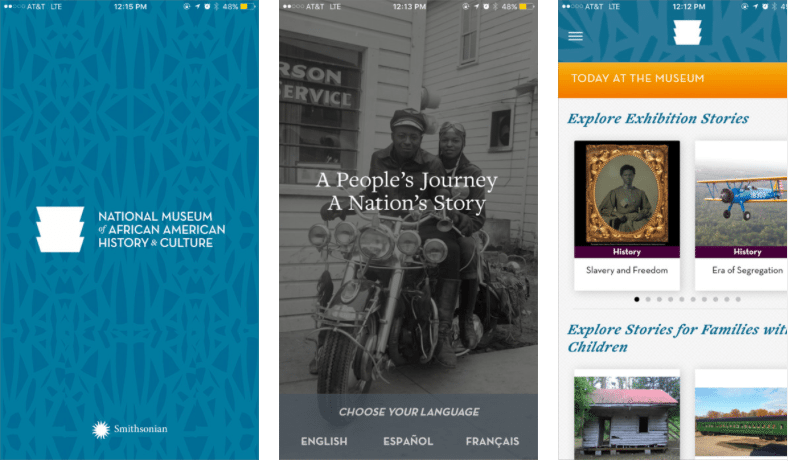Civil Rights Tourism Is Growing and Needs Better Apps

Skift Take
Race is a searing hot topic today — young people are hitting the streets like their parents did in the 1960s, protesting against police brutality, mass incarceration, and a new wave of white nationalism.
Destination marketing organizations are slowly realizing that civil rights is a tourism asset, a valuable part of a place's identity, like country music in Nashville or cajun food in New Orleans. In Washington D.C., America’s only national museum devoted to black history just opened to the tune of $540 million and has drawn intense crowds — timed tickets are booked solid through March 2017. And that’s just the biggest of many new civil rights museums in the U.S. Black Americans are among the fastest-growing traveler groups in the country, spending $48 billion annually, with black history attractions being a priority for most, according to a study by Mandala Research.
But here’s the key: young black Americans today are more familiar with Black Lives Matter than the Million Man March, and they're planning trips on their mobile phones, not looking around for paper pamphlets. These free civil rights tourism apps aren't perfect, but they're on the right track to capturing this demographic:
Alabama Civil Rights Trail
While many state tourism boards bury an obligatory mention of black history in a corner of their website, Visit Alabama gives as much visibility to civil rights as other themes. Their visually appealing, easy-to-use app (with music) connects historical sites throughout the state, aiming to inspire visitors to see them all and make a longer, statewide journey of it. This may be the most successful app of the bunch.
According to Alabama Tourism Director Lee Sentell, “civil rights tourism is a growing interest for families as well as education groups,” largely traveling from the north and midwest regions of the U.S. but also from abroad. He also noted that the audience for civil rights tourism is increasingly multiracial and includes many young people. Historically, Alabama is especially rich in internationally-known civil rights sites.
About decades-old civil rights tourism efforts, Sentell said they used to be “mainly about history and not about tourism,” and Sentell wanted to update those materials, to “make these places accessible to people.” Portions of Martin Luther King’s speeches and sermons are being reviewed to go onto the app, and Alabama has three churches awaiting UNESCO status. It remains to be seen whether the Equal Justice Initiative’s forthcoming memorial to the victims of lynching will join the app in 2018.
National Museum of African American History and Culture
This groundbreaking new museum in Washington, D.C. actually has two apps: one to explore the museum's content, beautifully presented, and one for the grand opening of the museum back in September. The latter is now obsolete, but its features were very smart, including a trip-planner that allows you to search for hotels and restaurants, and figure out how to navigate Washington D.C. by car, public transit, or ride-sharing. Hopefully the museum will move some of those features onto their still-relevant app.
Arkansas Civil Rights History
While Arkansas isn’t famous per se for civil rights history, the capitol and other parts of the state saw many impactful moments, and with Arkansas being low on many travelers’ radars, they might as well emulate Alabama and build up the history they’ve got.
The app is an audio guide and self-guided walking tour, centered on Little Rock, with useful maps and ample historical detail. Like Alabama’s, this easy-to-use app invokes the violence and turbulence of the era, creating a sensory journey for the listener. Notable stops on the trail include lynching sites, freedom rides, and attractions related to Native American and Latino history.
Georgia Capitol Tour
Georgia’s self-guided capitol tour app is focused on civil rights and has excellent videos of black pioneers in the government. But given that Atlanta has its attractive new $103 million Center for Civil and Human Rights, as well as a separate app focused on MLK historical sites, the state may want to consolidate with one app that has a citywide scope and a slightly less clunky design.
Among those featured in the videos are protesters from a 1960 sit-in at the capitol’s segregated cafeteria, and state senator Leroy Johnson, who in 1962 began playing a pivotal role in desegregating the capitol with its “whites only” and “colored” facilities. There’s even video of Jimmy Carter, former president and governor of Georgia, discussing desegregation.
Civil rights tourism is no longer relegated to paper brochures and dusty old historical societies. Destinations that recognize the value of user-friendly tech will be able to attract more visitors, domestic and international, for these immersive experiences.




